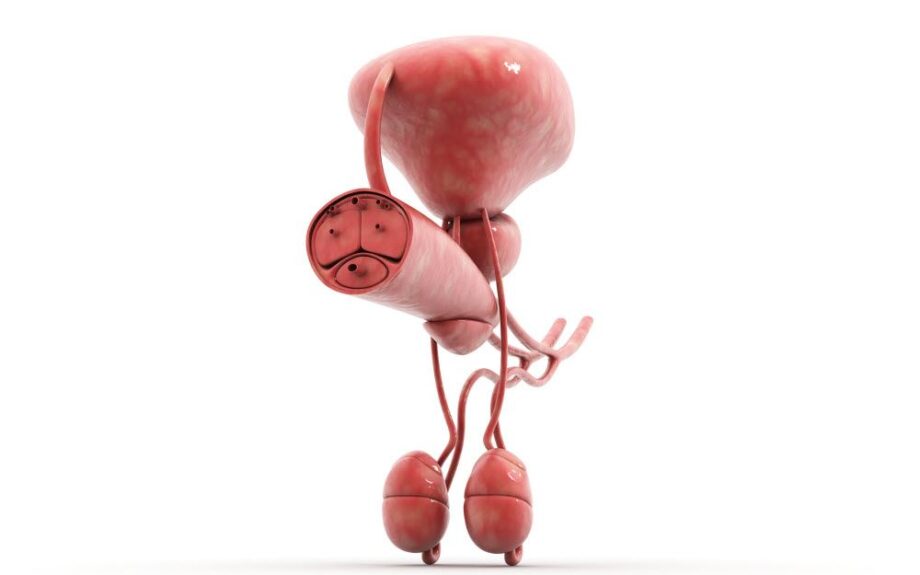I have a close friend who had a heart transplant. He has a name for it, and is generally pretty grateful that it saved his life. Although he's going to have to monitor his health, his vitamin intake, and take medicine for the rest of his life so his body doesn't reject the heart, psychologically, it's a new part - but still a part - of his body.
We're all pretty used to the idea of transplantation. Perhaps you know someone who's had an organ or tissue transplant. But one casualty we never think of when it comes to wars, car accidents, or any number of physically traumatic accidents is that sometimes people lose their penises. Whether an amputation was necessary on a battle field or after a car accident, the loss of a penis is something that's rarely ever discussed.
At least, it was rarely discussed until recently, when the second medically successful transplant was performed. The first was in China in 2006 and was successful in all ways but one: after a few weeks, the patient asked for it to be removed.
The surgery was a success by medical standards. The patient had feeling, blood pressure was fine, and he could urinate. He was even on the track to eventually being able to orgasm and maybe even ejaculate with the transplanted penis. However, the patient, who lost his penis after a car accident, and his wife could not get over the feeling that it wasn't his penis.
When the second transplant took place in South Africa, doctors wanted to wait before declaring it a success. This time around, the patient, who had lost his penis due to a "circumcision gone wrong" also received a medically successful penile transplant; he could have sex. Four months later, with the confirmed success of the patient feeling the penis was "his," the announcement was made. Later, it was announced that he had fathered a child.
The Psychological Difference Between Internal and External Transplants
When internal organs are transplanted, they are generally necessary to life; a liver, a kidney, lungs, a heart. They also aren't visible to us after the transplant occurs. Since we don't see them, they aren't really part of our concept of "me" except in the abstract. Our concept of our physical "self" is generally based on an external image. It is what we can see of ourselves in the mirror or when we look at our body parts. When it comes to body parts that are more visual, things get complicated.
Issues with transplants of external body parts, such as hands, have resulted in weird psychological effects for the patient. It can cause a feeling of a discomfort because of having "another person's" or "a dead person's" body part. That feeling is actually fairly common. Yet, transplanted penises, as intimate as they are, may pose more of a risk of creating these dysphoric sensations.
I can imagine that for those born with a penis, the loss is fairly traumatic. Socially, penises are seen as a visual and physical representation of manhood, virility and fertility. Penises are also an incredibly intimate part of our anatomy, linked for most people with pleasurable sensations and a way to give pleasure to someone else. A penis is a personal matter. I think it's fair to say that losing one's penis is devastating in many ways aside from altering daily function. The emotional connection isn't just utilitarian.
So it makes a lot of sense that there would be an emotional and psychological disconnect for those who have undergone penile transplant. Although the penis works and maybe even feels like it should, it's not the same.
The added feeling that the penis once "belonged" to someone else, someone who is dead, adds an additional level of discomfort.
Why Aren't Penile Transplants More Common?
On the flip side, men are often unwilling to donate their penises after death, even though many are willing to donate organs to help save the lives of those in need. For many, there's a squick factor to the concept of sharing an intimate body part, even after death, and even if it will return normal functioning for another person.Families also seem to generally be against signing over their loved ones' most intimate parts.
There is, however, a way to move past this in the near future. Scientists are working on using nanotechnology to build new penises. It might sound like something out of science fiction, but this may help more patients feel comfortable with their new appendages. It also helps move past the need for people or their families to donate the body part.
Although it's a complicated situation, when consent happens on all sides and a penile transplant patient can overlook their new penis' past feel that it's their own, penile transplant is definitely a great leap forward in medical practice. Not only can it help restore regular functioning like urination and even the ability to have sex and produce children, it's also a step in a direction that will result in higher quality genital reconstruction surgeries for trans and gender non-conforming people.
Ultimately, we're at a crossroads. There is a real need for penile transplantation. But the surgery goes beyond successfully attaching the organ. It's a deeply personal surgery, both for the transplant recipient and the donor's family.


















